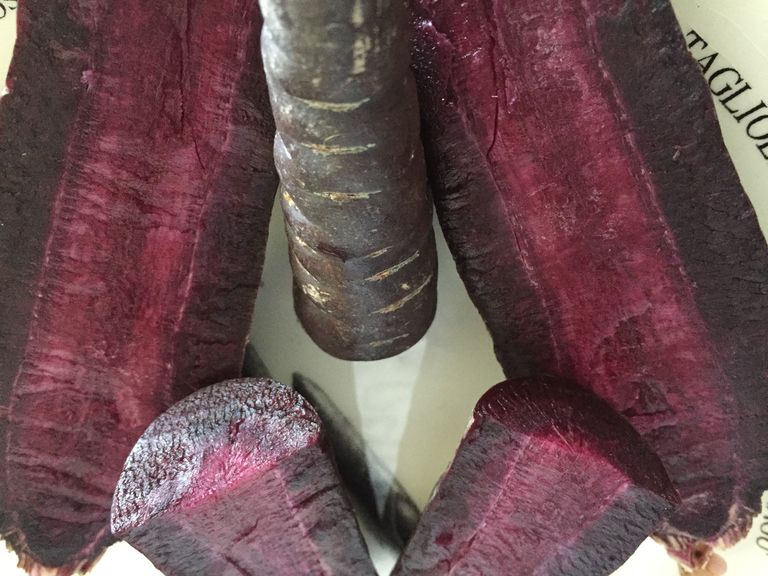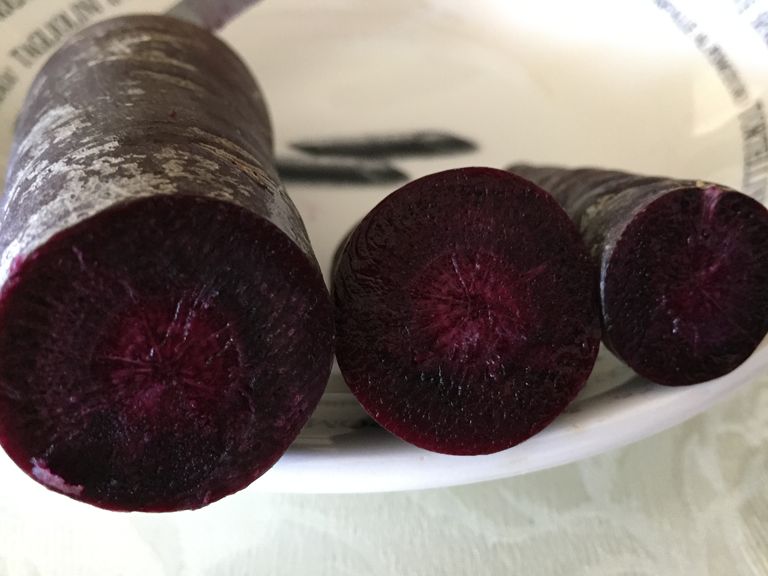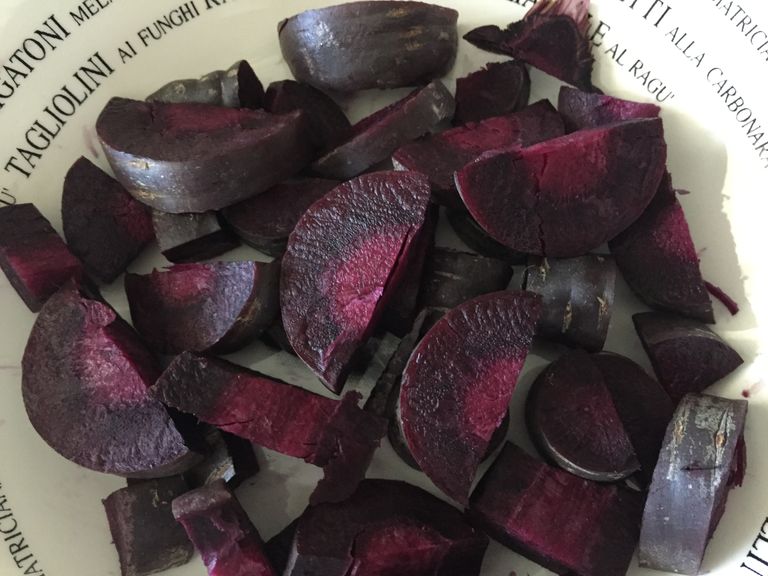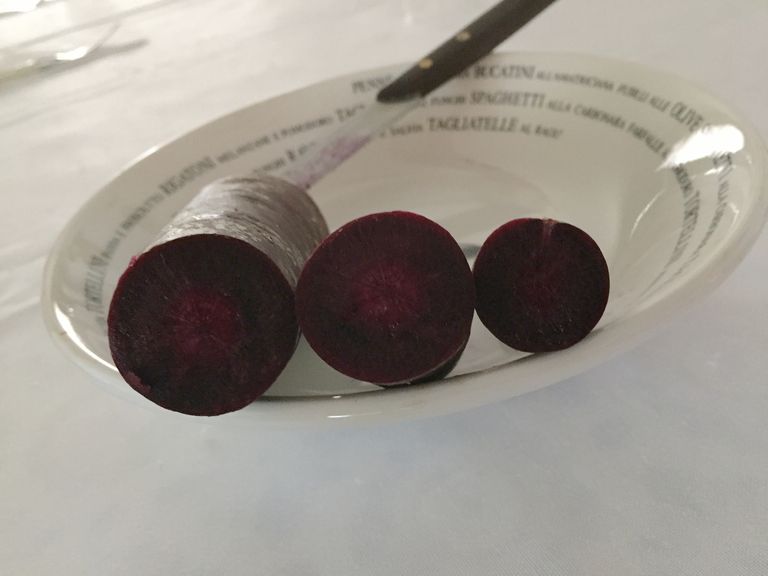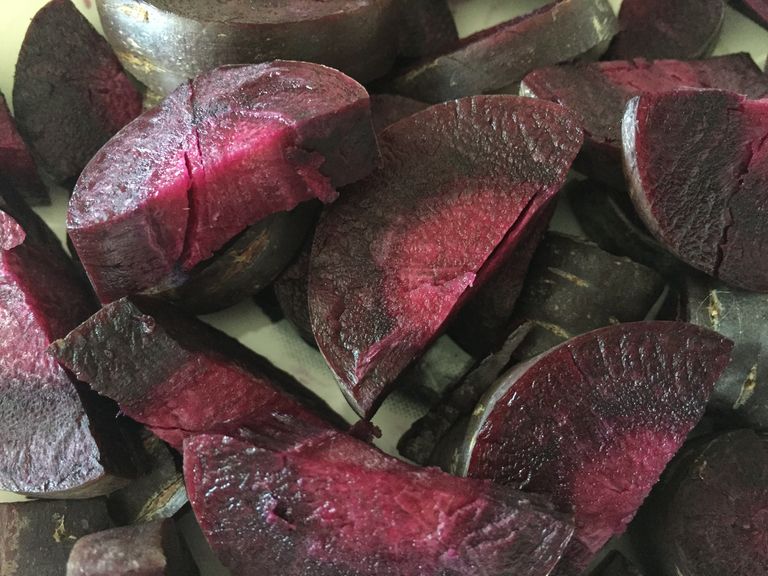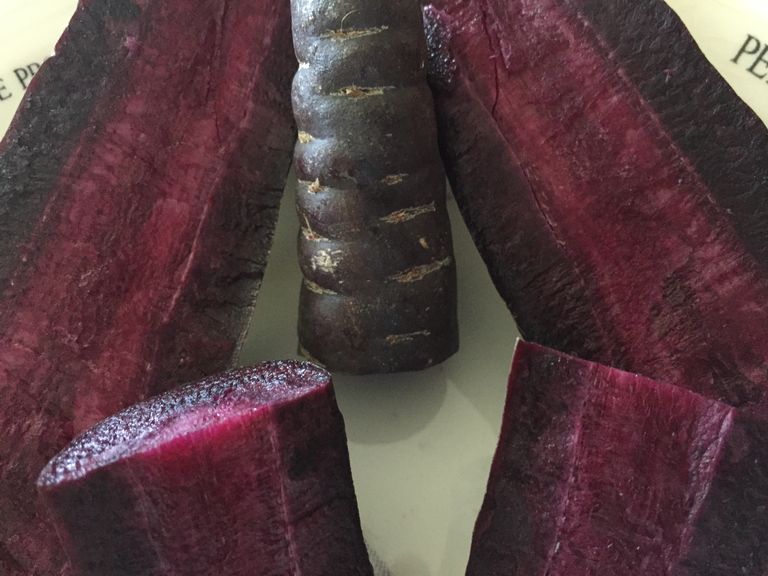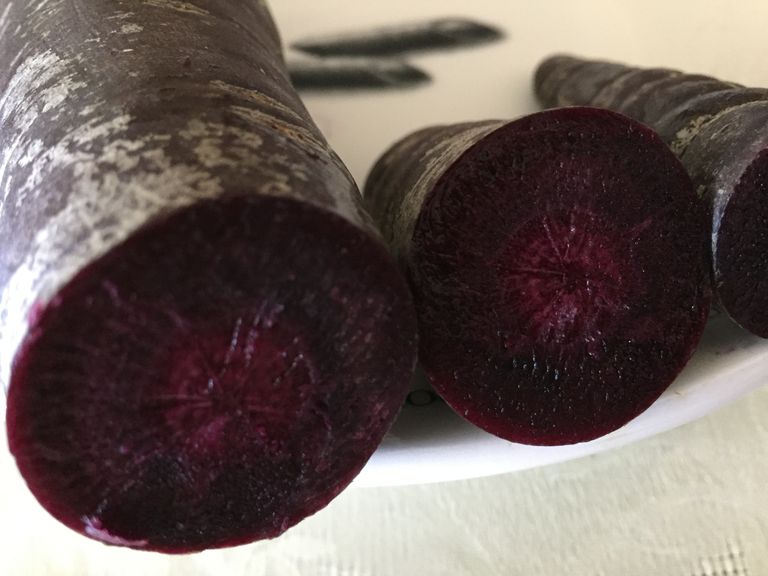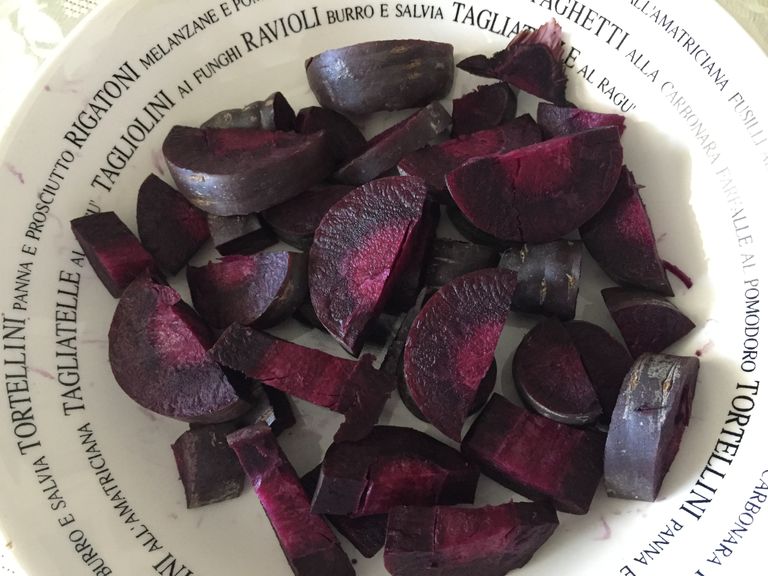Purple carrots are a vibrant and colorful variety that has recently gained popularity for both their distinctive flavor and impressive health benefits. While the traditional orange carrot might be more familiar, purple carrots offer a unique experience for the taste buds and deliver an array of nutrients that can support overall health.
A Taste That’s Uniquely Sweet and Earthy
One of the most notable qualities of purple carrots is their taste. Compared to orange carrots, purple carrots have a richer, slightly earthier flavor, often accompanied by a hint of sweetness that makes them particularly appealing in both savory and sweet dishes. The taste can vary slightly depending on the specific variety of purple carrot. For example, some varieties have a sweet, peppery flavor, while others might lean toward an earthy, slightly spiced profile.
Purple carrots work well in a variety of culinary applications, from fresh salads and slaws to roasted vegetable dishes. They also add a pop of color and an intriguing depth of flavor to smoothies, juices, and even desserts. When cooked, purple carrots retain their color better than many other vegetables, making them an attractive addition to dishes that benefit from visual appeal.
The Health Benefits of Purple Carrots
Purple carrots are not only a treat for the taste buds but also for the body. Their unique color comes from anthocyanins—antioxidant compounds found in blueberries, red cabbage, and other deeply colored fruits and vegetables. These compounds give purple carrots a wide range of health benefits:
High in Antioxidants: Anthocyanins are powerful antioxidants that help neutralize free radicals in the body, protecting cells from damage and reducing the risk of chronic diseases. Research has shown that diets high in antioxidants can support heart health, reduce inflammation, and even slow the aging process.
Anti-Inflammatory Properties: Purple carrots are known to have anti-inflammatory effects, which can be beneficial for those dealing with conditions like arthritis or inflammatory bowel disease. Anthocyanins work to reduce inflammation by blocking certain enzymes in the body that trigger inflammatory responses.
Rich in Fiber: Like other types of carrots, purple carrots are a good source of dietary fiber. Fiber supports healthy digestion, helps to stabilize blood sugar levels, and can contribute to weight management by keeping you fuller for longer.
Supports Heart Health: The high antioxidant content in purple carrots has been linked to lower blood pressure and cholesterol levels, which are essential for heart health. Regular consumption of foods rich in anthocyanins can improve circulation, reduce the risk of blood clots, and promote a healthy cardiovascular system.
Boosts Eye Health: Purple carrots are also high in beta-carotene, an antioxidant that the body converts into vitamin A. This essential vitamin is known to support eye health, reducing the risk of macular degeneration and other age-related eye issues.
Culinary Flexibility and Dietary Appeal
In addition to their flavor and health benefits, purple carrots are versatile and can easily be incorporated into a variety of diets, including vegan, vegetarian, and gluten-free. They can be enjoyed raw or cooked, and their vibrant color makes them a wonderful addition to dishes that are as beautiful as they are nutritious.
For anyone looking to add variety to their meals while also reaping health benefits, purple carrots offer a delicious and colorful option. Whether consumed as a snack, in a hearty stew, or even as part of a dessert, purple carrots bring an enjoyable balance of flavor, nutrition, and aesthetics to the plate.

